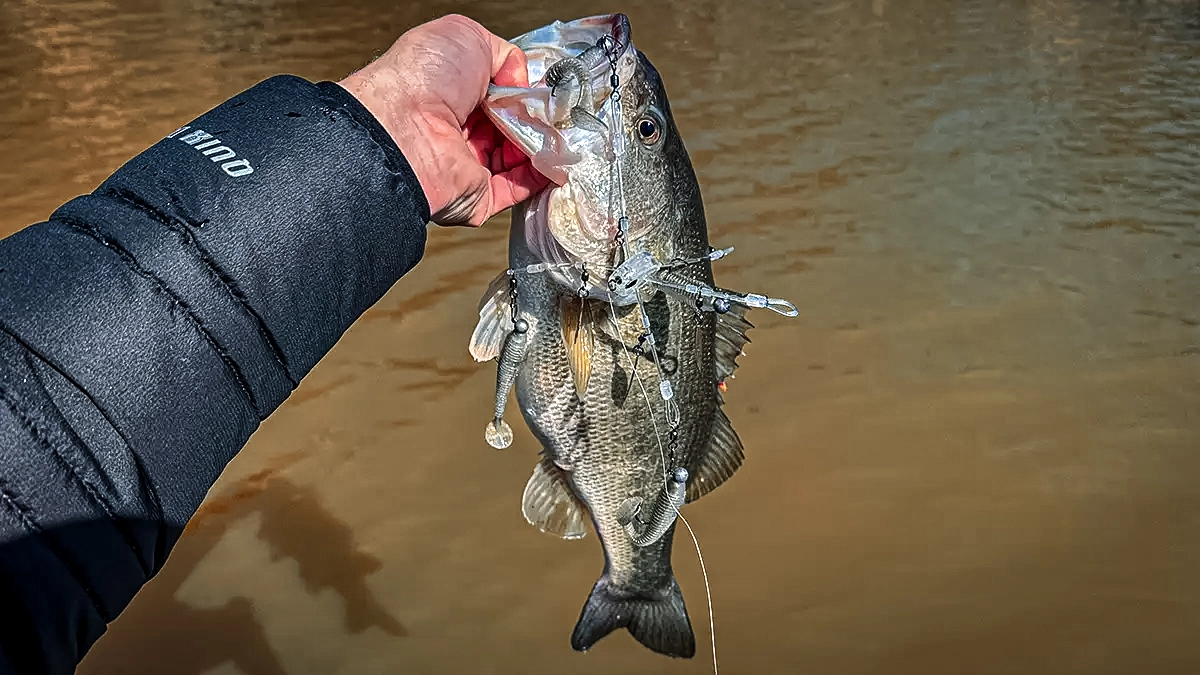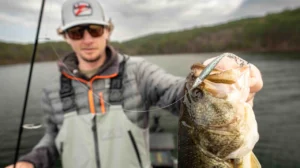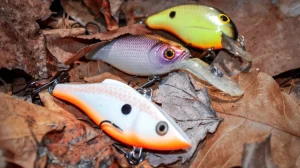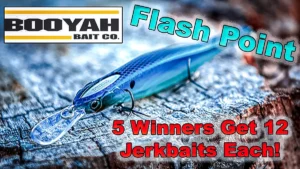Winter is here, and there’s no better time to throw an umbrella rig. Umbrella rigs have been productive winter bass fishing lures since their inception, because of their drawing power, efficiency, and versatility. They’re extra effective this time of year because now is when bass are feeding heavily on shad.
With the growing popularity of umbrella rigs over the last several years, numerous companies have released their own versions. While this is great for anglers, it often makes choosing the best umbrella rig fairly difficult. Here’s exactly what you should look for when choosing your next umbrella rig.
What Is An Umbrella Rig?
The purpose of an umbrella rig lure is to mimic a school of baitfish swimming together, which is super attractive to the fish that eat them. It consists of a central frame with several arms that, together, can hold multiple hooks or lures that are usually baited with soft plastics or small swimbaits. This creates a more natural multi-fish appearance that’s almost irresistible to predatory fish like bass.
Umbrella Rig Parts:
- Frame: The main body of an umbrella rig is metal, and can have anywhere from three to eight arms extending from it.
- Arms and Hooks: Each arm holds a hook or a soft plastic lure. These hooks can be attached to jigs or other types of soft plastics.
- Bait/Soft Plastics: The soft plastics used on an umbrella rig are usually small, minnow-shaped lures.
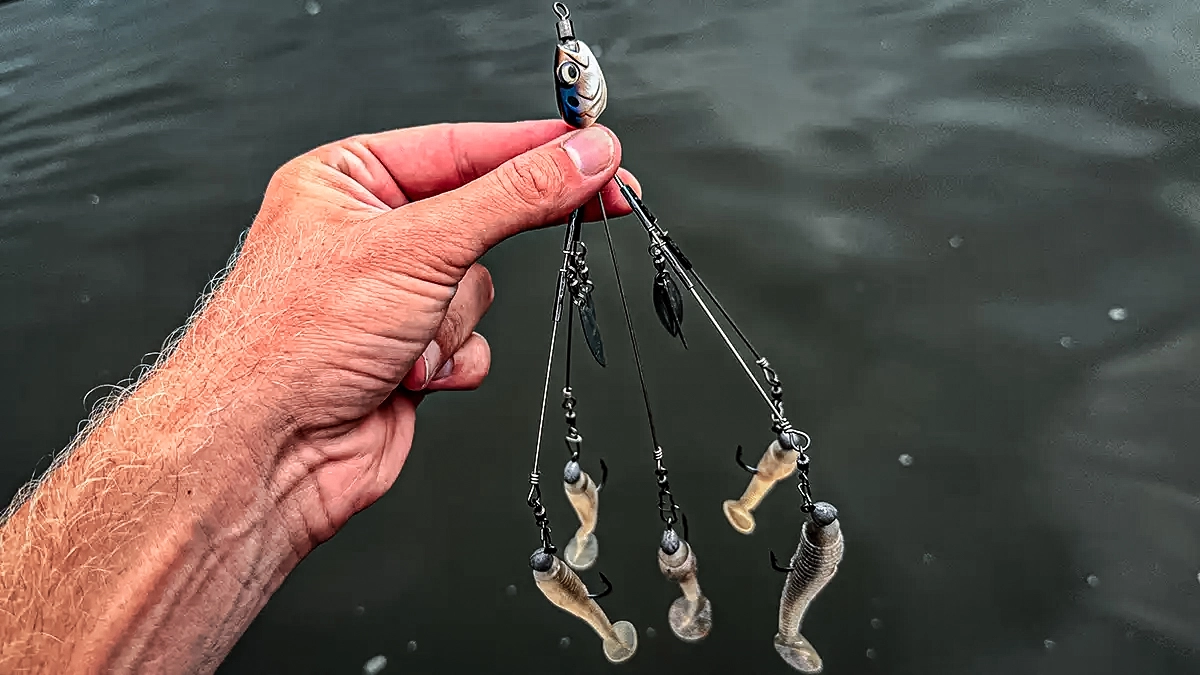
The umbrella rig’s popularity skyrocketed in recent years because it has a tendency to catch larger bass, especially in tournament settings. It’s so good at its job that some states and fishing tournaments now have restrictions on umbrella rig usage.
Be sure to check the local regulations on umbrella rigs before you hit the water so you know what is legal and what isn’t. For example, many states limit the number of hooks you’re allowed to use on a single lure.
Umbrella Rig Size Considerations
The first thing you should pay attention to when selecting an umbrella rig is size, and that means the number of arms, the length of those arms, and the size of the swimbaits attached to the rig.
Umbrella rigs can have three to eight arms — most will have five, which is referred to as an Alabama Rig, a type of umbrella rig that is definitely the most popular among bass anglers, especially in clear, deep water.
Shorter arms are meant to support smaller swimbaits and longer arms are meant for larger baits. During late fall and early winter, you want to go with a smaller umbrella rig, which is when baitfish are at their smallest, which is what bass are keying into at that time of year.
Downsizing your umbrella rig is a great way to generate a few extra bites, especially when you’re around small bait. The Yum Yumbrella Flash Mob Junior is a great option, with a compact profile perfect for supporting the standard 2.8- and 3.3-inch swimbaits.
Umbrella Rig Drawing Power and Blades
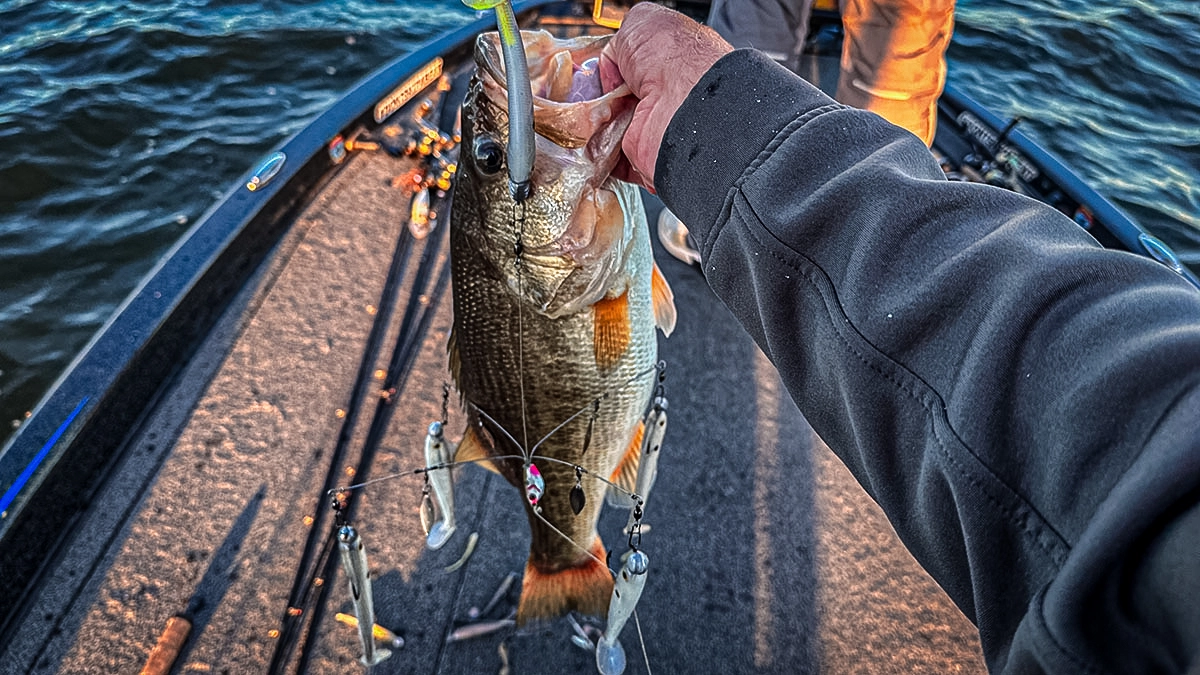
Drawing power is arguably the most important factor in the umbrella rig’s success, and it is largely what separates it from other lures. Other than maybe a glide bait, there’s no lure that attracts bass from a distance like an umbrella rig.
The lure’s size and overall water displacement as it moves through the water mimicking a school of fish causes bass to travel farther than they would for smaller presentations.
Don’t forget about the blades — they can greatly affect your umbrella rig’s drawing power. Some umbrella rigs incorporate 10 willow blades or more, while others have none. This added flash is great for calling fish in from greater distances, especially in colder water.
Try using umbrella rigs both with and without blades. You want to use them when you’re fishing in ultra cold or muddy water, and ditch them if you’re fishing ultra-clear water.
For a bladed umbrella rig, you can’t go wrong with the Picasso Lures Flash Back.
Sink Rate and Weighted Umbrella Rigs
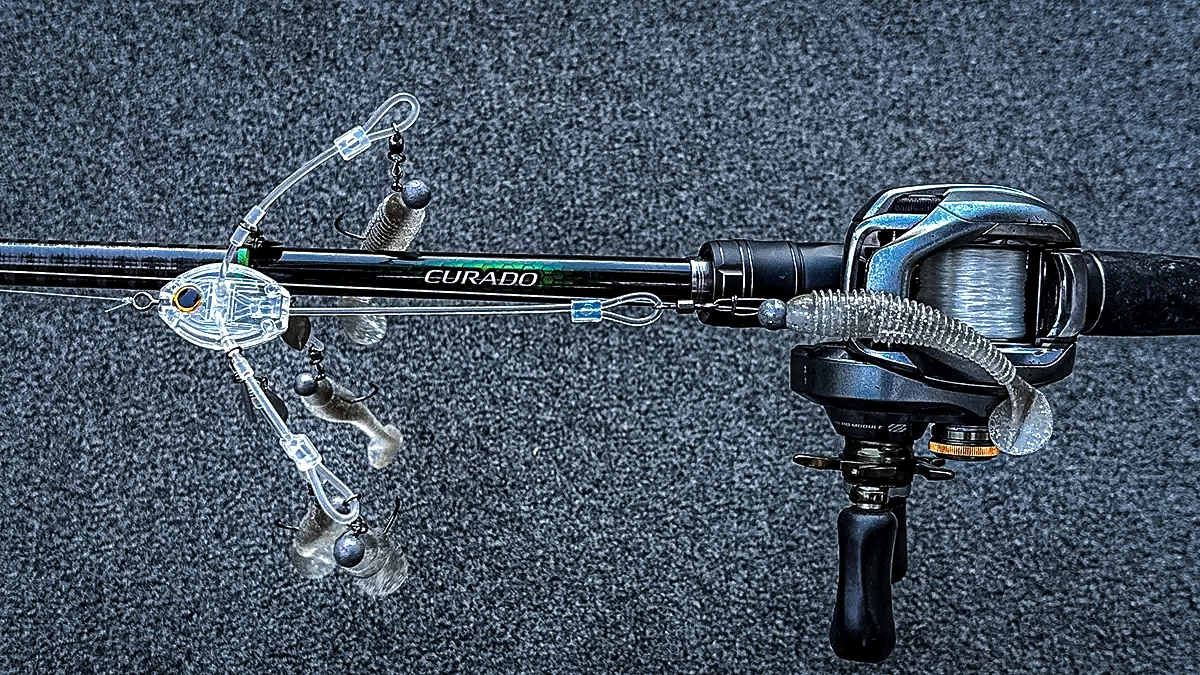
Sink rate is another important factor whenever you’re choosing the right umbrella rig. Not only does choosing the correct sink rate allow you to fish in both shallow and deep water, but it also affects the speed of your retrieve.
Obviously, a lighter umbrella rig is better for shallow water fishing, but it can do well out deep, too. During the colder months, predatory fish are much more lethargic and they move slower than they do in warm weather, so you should go with a lighter rig in the winter. That way, you can slowly float the rig above fish, which gives them way more time to commit to the lure.
This is a super effective strategy during the heart of winter, and it has produced some giant bass for a lot of anglers.
You can also get a lot of attention from winter bass with a heavyweight umbrella rig, like the 6th Sense Divine. This usually works best when fish are suspended above deep water, because it lets you quickly burn the lure past their face, often generating a reaction strike. This works great throughout the winter, and it’s an excellent way to target fast-moving suspended fish.
Durability and Clear Umbrella Rigs for Winter Bass
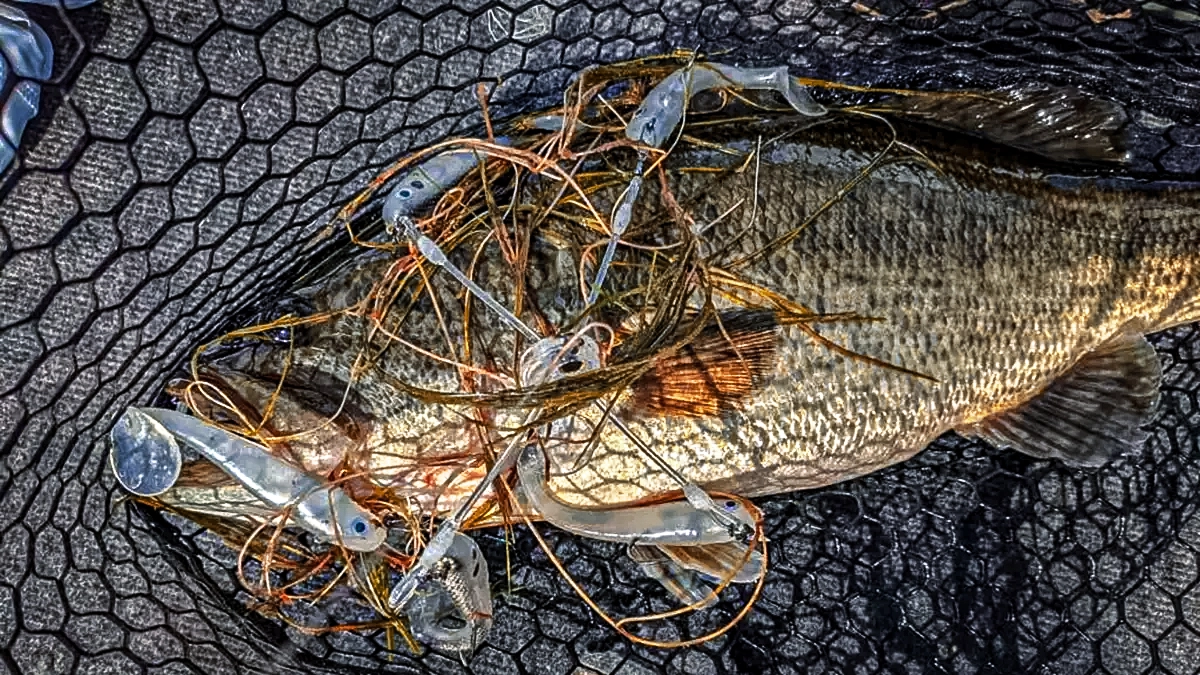
Umbrella rigs aren’t cheap, so you want to use rigs that will last. This is especially true when going after stripers, muskies, and other big game fish.
Even largemouth bass can break off arms and other pieces of this intricate lure. While metal umbrella rigs are capable of surviving a fair number of bass, they all break over time. If you want a durable metal umbrella rig, again, go with the 6th Sense Divine mentioned above.
Using a clear umbrella rig, like the Stealth Lures Stealth Rig, is another option that works extremely well, plus they’re super durable. I’ve caught upwards of 500 fish on one single Stealth Rig, and ive never had an issue with breaking an arm or any of its components. Furthermore, as the name indicates, these rigs are completely see-through, allowing for a more subtle presentation with an otherwise bulky lure. This presentation is great in high pressure or clear water scenarios, and it will probably become one of your go-to rigs in short order.


